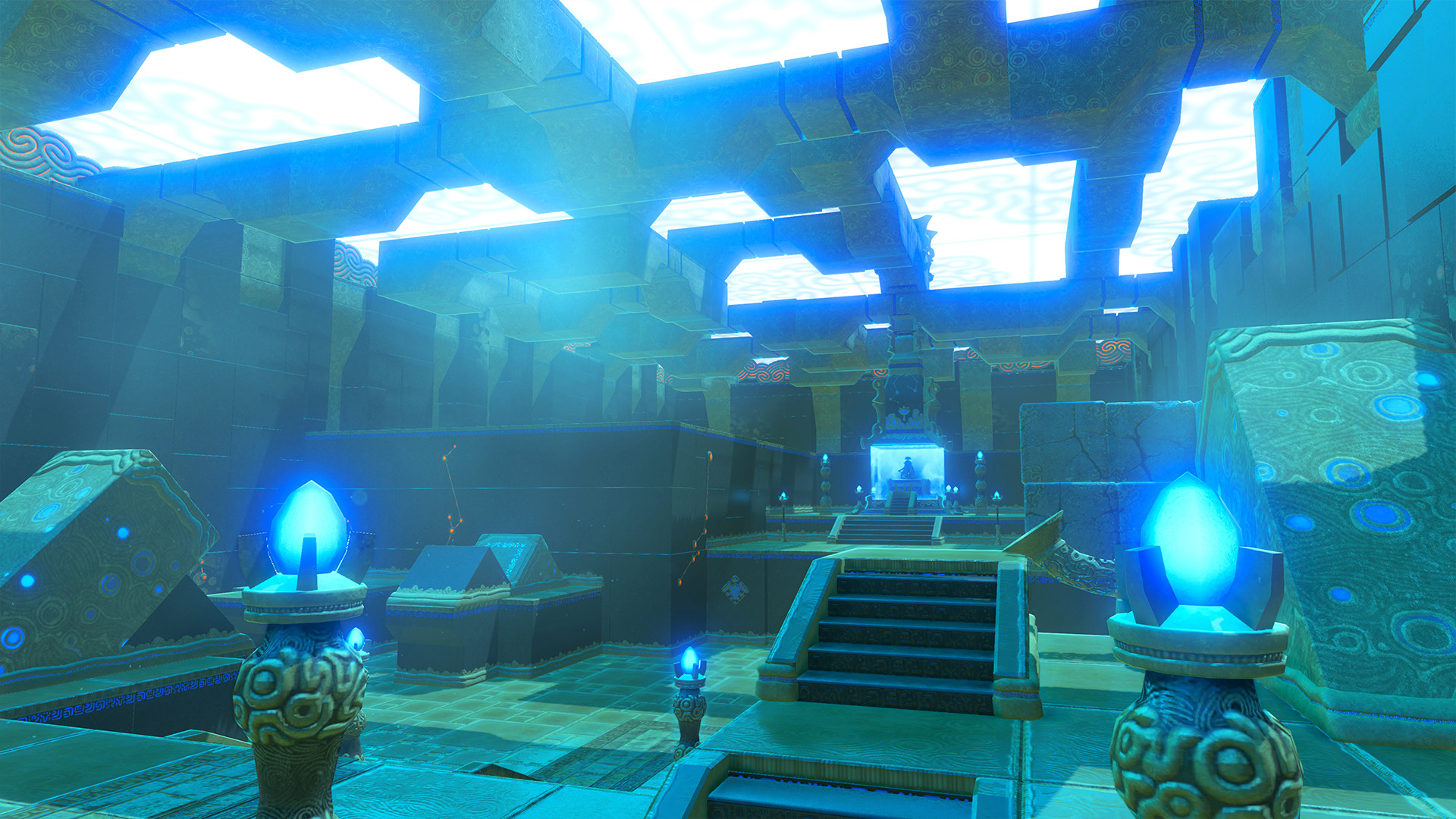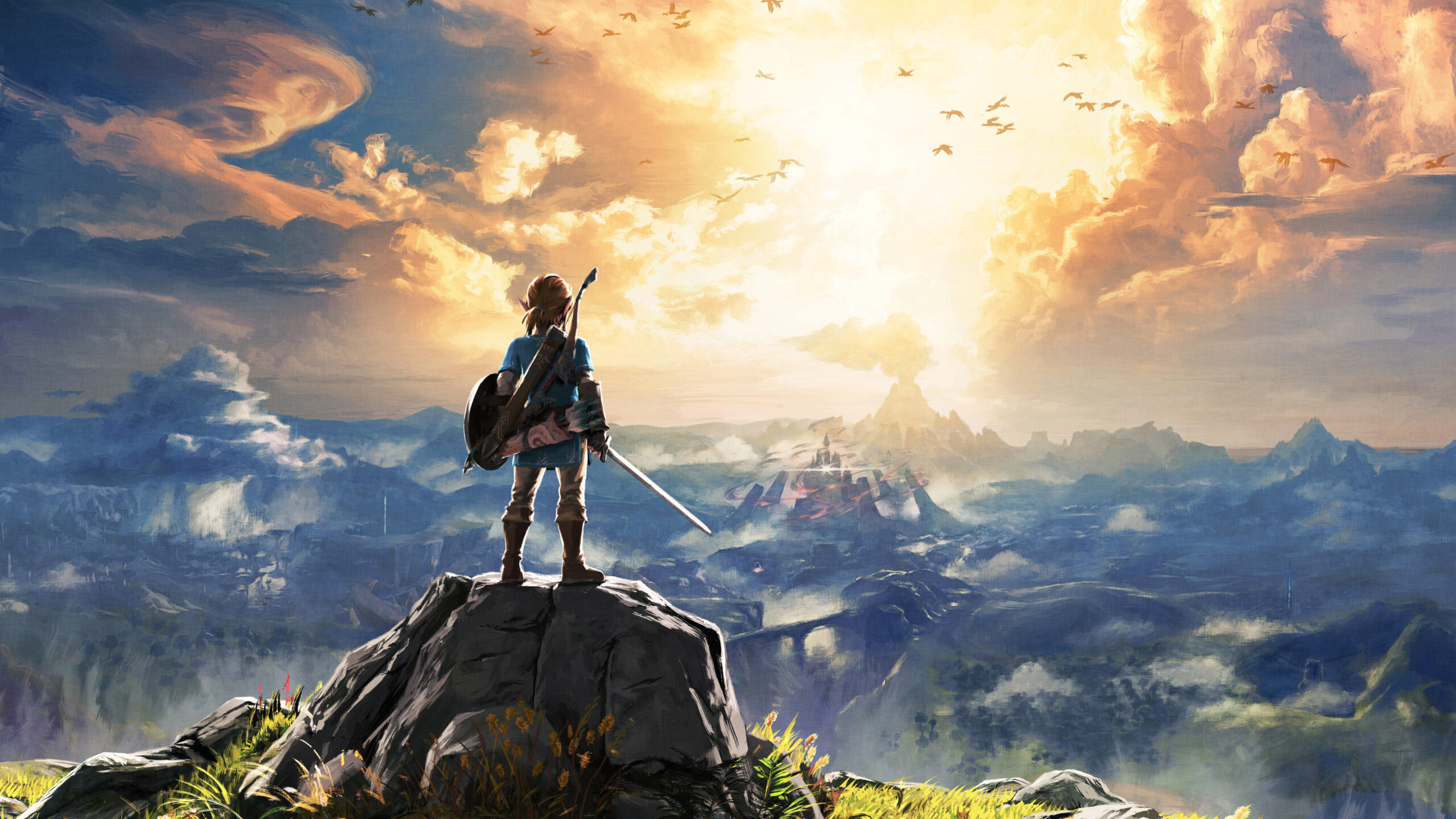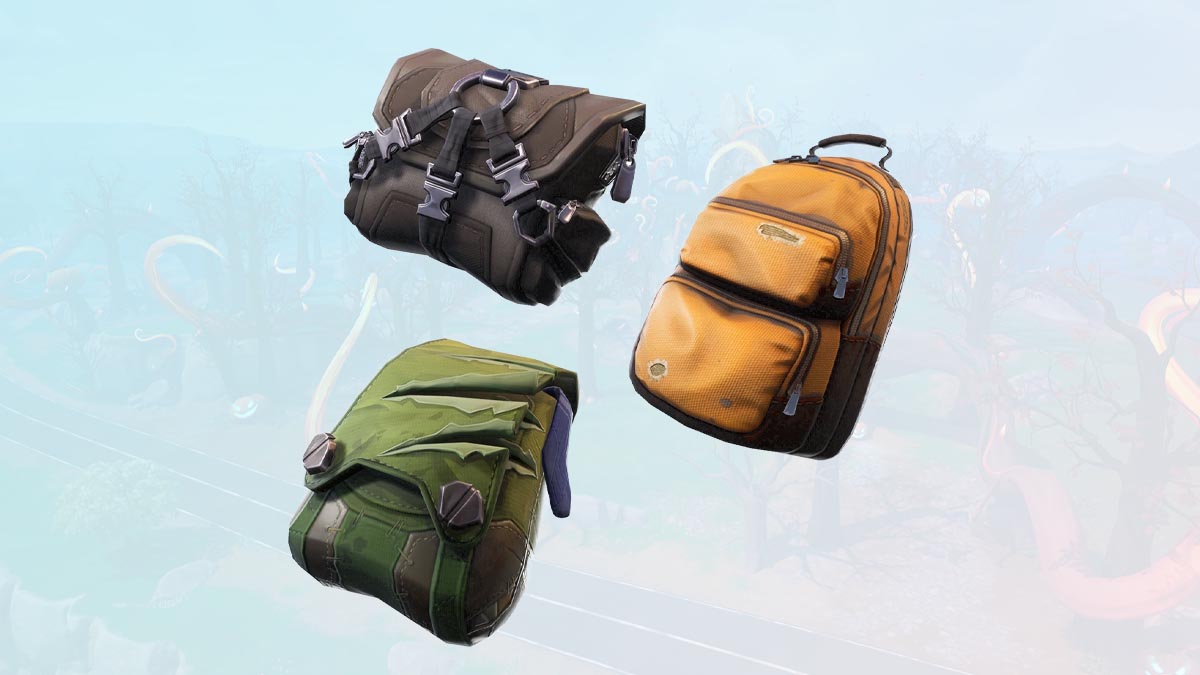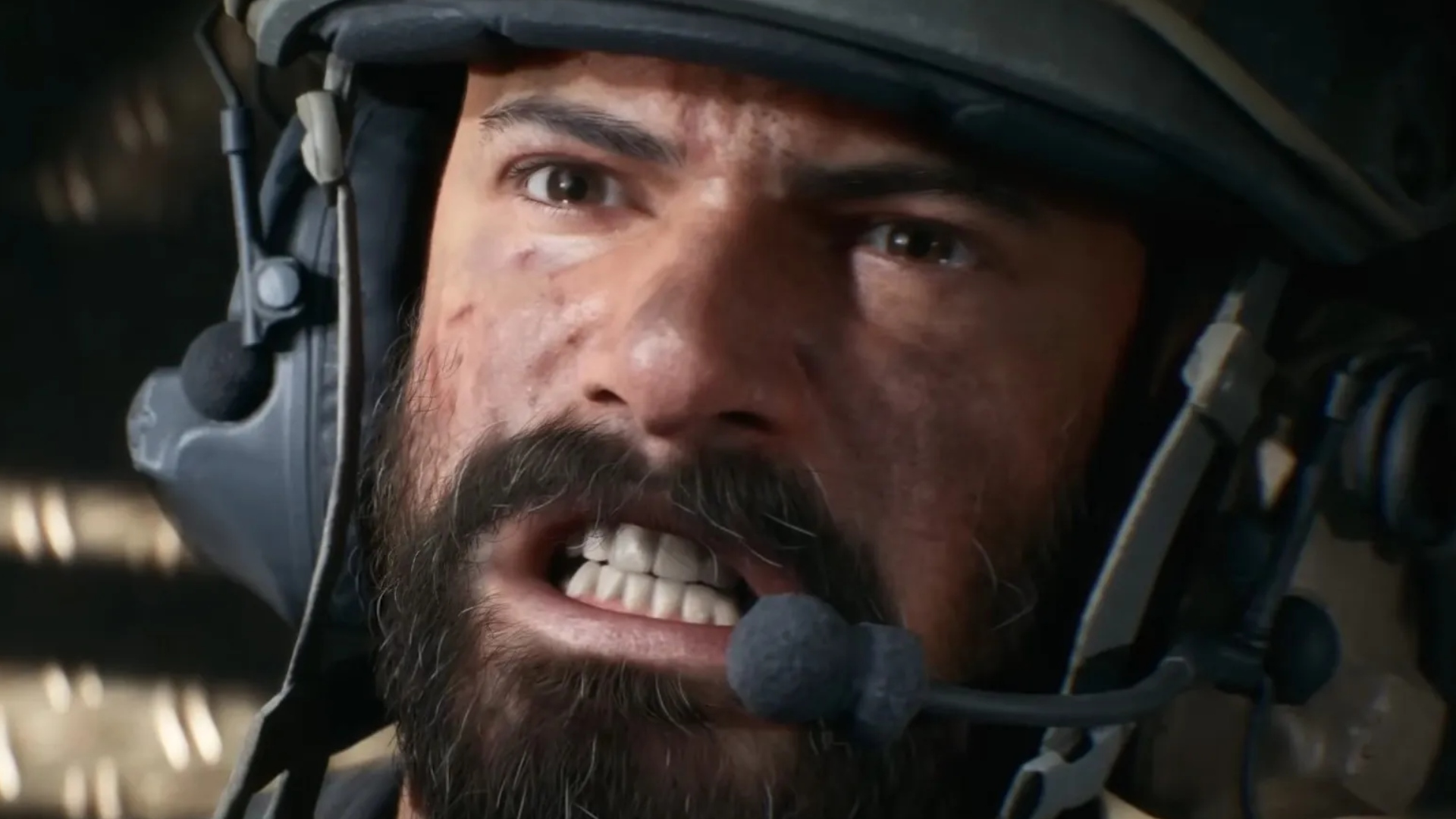You can trust VideoGamer. Our team of gaming experts spend hours testing and reviewing the latest games, to ensure you're reading the most comprehensive guide possible. Rest assured, all imagery and advice is unique and original. Check out how we test and review games here
A little while ago it was announced that an escape the room game based on The Legend of Zelda, licensed by Ninty and everything, was touring North America and, eventually, Europe. People were excited. But previews and reviews are now coming in, and Defenders of the Triforce doesn’t seem to be quite the experience people were expecting.
To talk about the game, as well as how video games can transfer to escape games, and what escape games can learn from Zelda, I sat down with Dean Rodgers. Dean is a writer, producer and a director who works in immersive entertainment. He creates a lot of escape the room games, including the Crystal Maze live experience and working on that Resident Evil VII haunted house:
Dean is also a personal friend, although I use that term in the loosest way possible. I met Dean through playing Dungeons & Dragons and have frequently complained about him on this website. I know Dean as that friend who should not be trusted with a glass of red wine in your home unless you want red wine-coloured furnishings. Dean was once approximately an hour and a half late for a lunch because he was ‘Having a cup of tea.’ He suggested ’11-ish’ for this interview, so I prepared for him arriving at 11.30, which is what happened. Things like this mean I often forget Dean is in fact very good at his job (something I, out loud, expressed surprise at during this interview, a part I have not transcribed. You can hear it if you become a VGBG).
The text of this interview has been edited for clarity only. I have been unable to edit out the copious amounts of Dean. Alas, that would mean no interview at all.
Before we dig into the Zelda escape game specifically I thought it would be nice to talk about escape the room games in general, because they have exploded in popularity over the past couple of years.
Yeah they really have. The first escape game ever began in Kyoto in 2007. This industry was born just 10 years ago, so we’re talking, like, nothing has grown this fast in 10 years, when you think about where things are today. So back in 2015 there were 250 escape games in the UK alone. As of the end of last year there were 648 escape games in the UK.
To say it’s growing exponentially is kind of an understatement. There are a couple of reasons why I think this is happening. I think first and foremost it’s to do with the fact that, with so much technology, with so much entertainment at our fingertips, when people want to go out and do something with their friends they really want to do something now, they don’t want to watch something. What escape games provide is quite an active and quite an intimate experience for you and your friends. You really feel like you went on an adventure, and you created a shared experience and a shared story that you then can own.
A lot of the ones I’ve played and seen seem to be original ideas. Rather than being based on an existing IP it’ll be something you’ve come up with yourself.
Yeah, the reason that not many of them have used existing IP is largely because existing IPs are slow to trust new formats. It’s mainly that, more than anything else. I spend a lot of time trying to convince brands and people who control IP and entertainment companies that ‘You should totally build an escape game, guys!’ And I usually get kind of blank looks of, like, ‘Surely they can’t be that big?’ or ‘Surely it’s a fad?’ or ‘What is an escape game?’ Just generally speaking, big brands and big IPs are slow to catch on with new formats.
Do you think games are an IP that can translate well, and tie in to escape games?
I absolutely think so. I mean, I have made an escape game based on a video game, so I would be lying if I said otherwise. Everything that makes a video game great can be done in an escape game. The only thing you can’t do — which is maybe a big issue, maybe not, depends how you see video games — but you can’t translate the violence. There’s no way to simulate the violence of video games into a real life experience. How important you think violence is to video games kind of dictates that.
I don’t think it’s particularly important. I think the puzzle solving and challenges of video games, especially of games like The Legend of Zelda, like Resident Evil, can translate really well to escape games.
/https://oimg.videogamer.com/images/c6e6/b9a0a846-fe8a-4aa2-b1ef-8b402a955aa6_Resident_Evil_7_Artigo_Final__7.png)
Do you think gamers, for want of a better term, take to escape games differently to regular people?
To regular people!
Normies.
Civilians.
I think they take to them with a level of enthusiasm that inverted commas regular people don’t. I think there is a language of gameplay, that gamers understand, that takes regular people a few minutes to acclimatise to.
Do you think it’s a hurdle that a lot of video games are single-player focused: you are the protagonist, you are the hero? Something like Zelda is extremely single-player focused.
I think in escape games you’re still the hero, you’re just sharing that heroic nature with an ensemble cast. You’re doing heroism the X-Men way as opposed to the Superman way. You’re doing it with a group of people. And, like, anyone who ever plays an escape game ever always thinks they’re way better at it than everyone else on their team.
I am though!
So I do think people still view themselves as the hero in those scenarios, and any good escape game creator will create hero moments that make each player feel like they’ve really pulled it out of the bag, and they’ve really saved the day. Because those little moments are what make a game great, and what make you, coming out of a game, feel like you’ve done a good job — the same way you have micro-achievements in a video game.
So, moving on to the Legend of Zelda, the escape game that they’ve created is different in many ways to what you’ve just been talking about.
It is indeed. And that’s largely because it’s an approach of two different schools of escape game making. Escape games kind of emerged simultaneously from two different parts of the world: they emerged in Kyoto, and they emerged in Budapest. And there has been kind of a divergence between those two schools of thought, and how they have expanded.
The Japanese school is much more focused on puzzlecraft, on the puzzles being genuinely difficult and genuinely well crafted, whereas the Eastern European school is much more focused on immersion. It’s much more focused on putting you in the game. So, for example, some of the Eastern European games are about creating really detailed sets, creating a Steampunk battleship — yeah there’s one of those in Moscow, you should seriously check it out — or creating the lost temple that you’re in.
SCRAP, who made the Zelda escape game, are very much of the Japanese school, which is not about set dressing, not about theming, it is about puzzlecraft. And I personally think that is kind of the wrong way to bring a video game to life.
Because even though Zelda is a Japanese game, a video game is an immersive experience?
Yeah. And when people heard about the Zelda escape game I think what they wanted was to be in a recreation of a Zelda temple, and doing the kind of puzzles you would see there.
Pushing boxes around.
Pushing boxes around. Bending mirrors. I think those are the things people were expecting. Part of the reason I don’t think it has been necessarily the right way to do it is, from what I’ve seen, you’re sitting in a conference room at a table with a lot of pen and paper, going around to various points of the room sometimes. That, to me, doesn’t feel like a very embodied Zelda experience.
/https://oimg.videogamer.com/images/3f0a/9282dff0-d2b5-4661-b850-587542dacae9_Islington-Assembly-Hall-3.jpg)
The UK one is taking place in a hall that’s used for weddings and so on. It’s teams of six, with other teams of six sitting around them as well. So it’s not intimate. You can’t believe you’re the only Hero of Hyrule, kind of.
Exactly. From what I’ve seen and read about it, it seems like a very, very, very good pub quiz, as opposed to a detailed, immersive, intimate experience with your friends. And I can’t believe anyone would come out of that feeling like they were the Hero of Hyrule. Whereas I think in a more detailed experience, in a more immersive experience, you can do that.
Now, there are pros and cons. There are considerable reasons that they haven’t done it that way, the chief among them being cost. The kind of experience I am describing costs hundreds of thousands of pounds to build, and you can only get very small amounts of people through at a time.
And they’ve had to build theirs to travel, as well.
Yeah. So there are practical limitations on what they’ve done that are totally understandable. If you’ve got something that you want to pack up and tour, building the Temple of Light is a pretty ineffective way to do that.
And you are a massive fan of Zelda, right?
Yeah, and that lives and breathes in my work. You remember playing Time Run? One of the rooms in Time Run just sort of is ‘Dean rips off a Zelda temple’. It has the look and feel of a Zelda temple, and the puzzles you’re doing in there are very Zelda-esque. So that kind of was, for me, my little kick of ‘Ah, this is the closest I’m going to get to making a Zelda escape game, I’m happy with this.’
But since then, since making that and seeing the resurgence this has had, I think Zelda has a lot to teach the escape game world, genuinely.
Yeah? What do you mean by that?
I think the way Zelda constructs its puzzles is really great and really interesting, because Zelda’s puzzles are about physical objects in space, and you moving those objects and rearranging those objects in clever ways. And coming back to the same scenario again and again, and changing things and moving things around.
Whereas, say, Resident Evil does small puzzles that you as the player are focused in on, and you’re trying to solve then and there, a Zelda puzzle takes up the whole room. The whole temple or dungeon. The puzzle journey of a Zelda temple is really, really good. I think dissecting the puzzle making — I mean, the people who make Zelda games are excellent at making puzzles. They’re not necessarily about difficulty, it’s about giving the achievements, feeling progress, feeling like everything is thematically consistent and everything is working towards the same goal. Which I think Zelda does really really well.
/https://oimg.videogamer.com/images/59cb/breath_of_the_wild_tech.jpg)
So as a) someone who builds these kinds of experiences and b) someone who is a huge fan of Zelda, do you think for you there would be more value in having a static, but really detailed, immersive Zelda escape game?
I absolutely think so. I understand why there isn’t, don’t get me wrong. I understand that maybe that wouldn’t gain much attraction, and maybe you can only build it in certain places in the world. I don’t know if a Zelda escape game would make a load of money in London. But, on the other hand, it might be about rolling them out worldwide, and that being another market Nintendo expands into. You could have a Zelda escape game, and Mario escape games, and they would be well made and well thought out.
Because Nintendo’s history is one of making games, not necessarily one of making video games. Nintendo started out making card games and board games. There’s no reason why they shouldn’t move into new markets when they come into existence.
Well, they are with things like mobile games, so I don’t think they’re a stagnant company.
No, I don’t think so. I think Nintendo are quite innovative, and the live gaming market is only growing. Of course there’s a lot less money to be made in live gaming than there is in video games, but it’s not no money. It is quite considerable. Some escape games turn over quite huge amounts of money. One of the reasons escape games do so well is because they’re quite sound business propositions. An escape game can cover its costs, month to month, on something like 20% ticket sales.
Nothing in the world is like that. Because you’re effectively charging people to be in a room. You need maybe a member of staff to supervise them and make sure they’re alive, and a member of staff to clean up, and the usual costs of running a building. The big cost of escape games is making the game in the first place, you’ve got to make your money back on that one, but once you’ve done that it’s kind of easy.
I think one of the other difficulties with this, though, is that Nintendo is a family company and escape games are, a lot of the time, for adults…
I disagree! I made an escape game in Cornwall recently which was family focused, and there was a worry — because I’d never put kids through an escape game before, I didn’t know how they’d get on — that kids just wouldn’t get it.
Every team that had kids in it won the game, and every team that didn’t have kids in it struggled. Kids take to these things really well. They look at the world in a way that adults don’t. A family unit is sort of the perfect unit to play an escape game, it’s just escape game makers haven’t really been thinking like that, because something like 40% of the escape game audience is millennials. So we’re not thinking about the family audience just yet, but if we want to grow and expand as a market we must.
So, going back to getting big IPs to trust escape games, you definitely don’t think it’s a flash in a pan? Because it came out of nowhere –
It didn’t come out of nowhere. I think it’s come out of a really logical place in terms of what societies want. But I also don’t think it’s a fad. People considered poker a fad in 1870. I don’t think we’ve even seen the tip of the iceberg with escape games. I do think escape games have come from a natural place of, economically, what people want is quality time with their friends doing an activity. An activity that makes them feel clever, that makes them feel like the heroes. Because that’s the narrative we’ve been sold, and few things in the world give us that narrative any more!
I make immersive theatre as well, I’m a big believer in immersive entertainment. I think the fact that I can go home tonight and binge watch all of Master of None, and see one of the best comedy series that will be made this year without leaving my sofa, I think that means live entertainment has to do something more. And I think the thing that we have to do as live entertainers is acknowledge that what we can do is have the people in the room with us, and let them do things. I think that’s a thing that more and more people who get into live entertainment are beginning to understand. And more and more people are wanting those things, wanting those experiences.
What these immersive experiences create is: you come out of it and you have stories that you can tell. I created an experience a couple of years ago called Heist, where the audience has to commit a robbery. And everyone would come out of it with stories to tell, but it was very rarely the story I had written. It was usually stuff like ‘This one moment where I was hiding under a table, and a guard walked by…’ You allow people to create these stories for themselves.
It’s very similar to when you’re playing a pen and paper role playing game. The stories we tell are never the well crafted story the GM did. It’s always about that time that the asshole rogue disappeared leaving the rest of the party to do all the hard work themselves [Ed.: Dean is here referring to a specific, recurring complaint I have about his character in our Dungeons & Dragons game, who is an asshole rogue]. Because when you create a story yourself, as you feel like you’re doing in an escape game, you feel much more passionately about it, and you’re much more willing to share it, and people want to have those same experiences.
And I guess, looping back around, that’s a lot of what people really liked about Breath of the Wild.
Every Zelda game does that. But Breath of the Wild does it particularly well. In Breath of the Wild you generally feel like you’re just having a wander through Hyrule and you can do it whatever way you see fit. It’s sort of a different freedom to Skyrim or The Witcher. It’s a different sort of open world feeling that lets you get on with it. It feels more peaceful and gradual, and you can approach it however you like. Which is like how the real world is, a bit more, rather than doing a big overarching narrative and saving villages. It’s just like, ‘Ah, I’mma take a nice wander. I’mma find a nice horse.’
/https://oimg.videogamer.com/images/6241/0cb6a9ad-972f-4e1f-9569-fd2f755bb9a7_LoZ_Breath_of_the_Wild_Antevisao.png)
So if Nintendo rang you up tomorrow and they gave you free reign to build a Zelda game, you know where you’d start?
Oh yeah. I could do it like that [snaps fingers]. I could do it tomorrow.
Well probably not tomorrow, I’d need a few days to write it.
Maybe a few weeks…
But I’d love nothing more. And I think it would be a smash hit. I think you can tell that with the palpable excitement that people had for Defenders of the Triforce. From a lot of the commentary you see online, what they did expect was an immersive experience and to be in a Zelda temple themselves. And I think where a lot of the disappointment I’ve seen comes from is that they were in a conference room sat at a table. And that’s not really the promise of Zelda.
I don’t think it’s just Zelda. I made a Resident Evil escape game back in January which did really well. I think there are more and more video game IPs that could consider expanding into escape games, that could give escape games a go. I, gradually, really hope that more IPs start trusting escape games. And I think we will see that, we’re just seeing it very slowly. Hopefully Defenders of the Triforce can be an excellent gateway into that. I think once we start seeing that it’ll be like an avalanche.
The Legend of Zelda: Breath of the Wild
- Platform(s): Nintendo Switch, Wii U
- Genre(s): Action, Adventure, RPG







